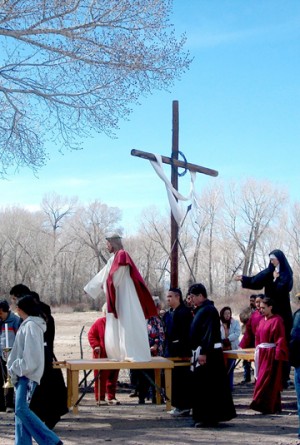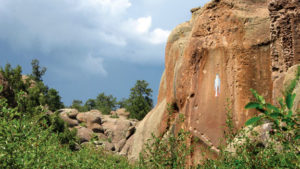by Christopher Kolomitz
The 67th General Assembly
Colorado state senators and representatives convened for the 67th general assembly Jan. 13 in Denver. The session ends on May 12 and is likely to be dominated by efforts to find a balanced budget. Other hot topics include the medical marijuana debate, natural resources, and jobs.
Democrats control the senate 21-14 and the house 37-27. In the first quarter of the session more than 500 bills had been introduced and Democrats used their advantage to kill bills during committee hearings and ramrod a variety of bills to passage, most notably a series that dealt with the budget and increasing revenue.
Projections for the 2010-11 fiscal year show a shortfall of more than $1 billion and legislators have said cuts to anything and everything are on the table, along with ideas to raise money through elimination of tax exemptions and new taxes. Since 2008 the state has closed a $2.2 billion shortfall.
Ideas to raise revenue include taxes on food items such as candy and soda pop, along with the taxing of online retail sales. In the second week of February, the state house passed roughly 10 bills that would generate about $125 million for the state. It went on to the senate, where it was expected to pass and be sent to the governor’s desk for approval. Included in the approval was a 2.9 percent energy tax. Currently the state doesn’t charge manufacturers on energy used, but under the proposal it would raise about $33 million over the next three years.
Higher education institutions in the state may be allowed to set their own tuition rates in an effort to make up for less state funding, if legislators approve. Other education cuts include about $260 million to K-12 schools, which has spurred local school districts to begin talking publicly about reduction of teachers, programs and services.
Capital Briefs
• A house committee approved a bill Feb. 8 that would allow rafters the right to float along a river through private property without the threat of being sued for trespassing by the landowners. The bill, sponsored by Gunnison’s Kathleen Curry, came about when a Texas development company threatened to shut down an outfitter who runs trips on the Taylor River.
• After weeks of negotiations with advocates and critics, Denver Senator Chris Romer and Poncha Springs Representative Tom Massey teamed up to introduce a bill to allow existing medical marijuana dispensaries to stay open, provided they reorganize as non-profits. The bill also prohibits on-site consumption of the drug, places limits on advertising, and allows towns to ban medical marijuana facilities. A bill introduced earlier set guidelines for doctor-patient relationships.
• Rep. Massey’s home was threatened by an anonymous caller in mid-January, allegedly in response to his work on medical marijuana bills. The news was reported by a handful of Front Range media outlets and in Salida via The Mountain Mail.
• A bill to allow law enforcement the ability to pull drivers over for not wearing a seat belt failed to move out of a house committee Feb. 9. State law currently requires use of seat belts but a cop can’t ticket you unless you’ve been pulled over for something else.
• A proposal to allow convenience stores to sell full-strength beer is being challenged by the small business community. Owners of liquor stores say approval would cause damage to their sales. Convenience store owners say they’ve been hurt by the recent addition of Sunday liquor sales which has reduced demand for 3.2 beer. The bill passed out of a house committee.
• Gov. Bill Ritter gave his final state of the state address Jan. 14. Ritter announced in early January he would not seek re-election to a second term. In his speech, Ritter touted his past three years, prepared legislators for budget battles, and called for advancements in green energy and creating jobs.
• In other priorities from the guv’s office, Ritter pledged to make the Colorado State Parks system the first in the country to use zero net energy by 2020; the modernization of teacher and student assessments that may lead to the replacement of the CSAP tests and a 10 percent increase, from 20 to 30 percent, regarding the amount of renewable energy utilities produce.
• According to the Montrose Daily Press, a house bill requiring schools be notified when potentially dangerous students will enroll is drawing local support. Introduced Feb. 5, the bill requires the Department of Human Services to notify local school districts of students who are in state care and are identified as presenting a risk to the community or themselves. The bill is in response to a 2008 attack of a 14-year-old girl by a 17-year-old boy who had previously had been under the care of the Mesa County Department of Social Services, the paper reported.
• Senators approved a plan to overhaul the state’s retiree pension program to prevent it from going broke in about 20 years. The plan includes no cost of living increase this year and future caps on the increase. Additionally, the retirement age would increase from 55 to 60, and employers and employees would be required to increase contributions.
Christopher Kolomitz currently lives in Denver where he is recharging his batteries after a 10-year run in the newspaper business.

